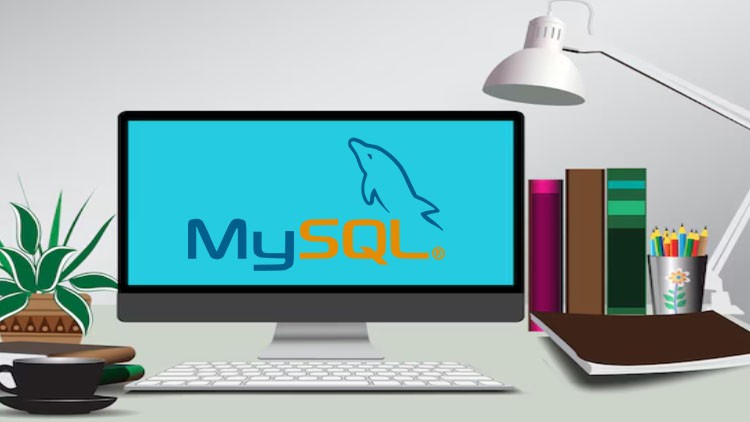
Become a MySQL expert by learning how to build, query, and optimize relational databases.
What you will learn
What is MySQL? Overview and Use Cases
Installing MySQL: Windows, MacOS, and Linux
Using MySQL Workbench and Command Line
Overview of Relational Database Concepts
Introduction to Databases, Tables, and Relationships
Basic SQL Commands: SELECT, INSERT, UPDATE, DELETE
Filtering Data with WHERE Clause
Sorting and Limiting Results: ORDER BY, LIMIT
Using Aggregate Functions: COUNT, SUM, AVG, MIN, MAX
Grouping Data with GROUP BY and HAVING
Working with Dates and Time in MySQL
Designing a Database Schema From Scratch
Primary and Foreign Keys: Establishing Relationships
Understanding and Using JOINs: INNER, LEFT, RIGHT, and FULL JOIN
Using UNION and UNION ALL
Creating, Modifying, and Deleting Databases and Tables
Adding Constraints: NOT NULL, UNIQUE, CHECK, DEFAULT
Database Backups and Restoration
Triggers and Events: Automating Database Tasks
Connecting MySQL with Programming Languages (Python, PHP, Java)
Exporting and Importing Data: CSV, JSON, and XML
Add-On Information:
Note➛ Make sure your 𝐔𝐝𝐞𝐦𝐲 cart has only this course you're going to enroll it now, Remove all other courses from the 𝐔𝐝𝐞𝐦𝐲 cart before Enrolling!
- Master the complete lifecycle of MySQL database administration, from initial setup across various operating systems to advanced management and optimization for peak performance.
- Develop an intuitive understanding of relational database principles, empowering you to design highly efficient, normalized schemas that are robust and scalable for any application.
- Harness the full power of SQL to perform sophisticated data manipulation, retrieval, and analysis, moving beyond basic queries to craft complex statements for insightful reporting.
- Implement advanced techniques for data integrity and validation, utilizing constraints like NOT NULL, UNIQUE, CHECK, and DEFAULT to build bulletproof databases that prevent inconsistencies.
- Strategically employ various types of JOINs and UNION operations to merge and aggregate data from multiple tables, unlocking comprehensive views and relationships within your information.
- Automate routine database tasks and enforce business logic with triggers and events, creating dynamic and responsive database systems that reduce manual oversight and improve efficiency.
- Gain expertise in critical database maintenance, including robust backup and restoration strategies to safeguard your data against loss and ensure business continuity under any circumstances.
- Seamlessly integrate your MySQL databases with popular programming languages like Python, PHP, and Java, enabling the development of powerful, data-driven applications and services.
- Learn professional data import and export methods using formats like CSV, JSON, and XML, facilitating smooth data migration and interoperability with diverse systems and analytics tools.
- Cultivate best practices for database security, performance tuning, and resource management, equipping you to build and maintain high-performing, secure MySQL environments.
- Develop a problem-solving mindset to diagnose and optimize database performance issues, ensuring your applications run swiftly and efficiently under various loads.
- Build a practical portfolio of skills that are highly sought after in the tech industry, preparing you for roles ranging from database developer to data engineer and administrator.
PROS:
- Comprehensive Skill Development: Progress from foundational concepts to advanced techniques, equipping you with a holistic understanding of MySQL for real-world application.
- Hands-On Practical Experience: Engage with numerous practical exercises and real-world scenarios, ensuring you gain actionable skills rather than just theoretical knowledge.
- Career-Ready Expertise: Acquire highly valuable skills that are in demand across various industries, significantly boosting your profile for database-centric roles.
- Mastery of Essential Tools: Become proficient with industry-standard tools like MySQL Workbench and the command line, enabling efficient database management and development.
CONS:
- Requires Dedication to Practice: True mastery of complex database concepts and SQL optimization demands consistent practice and independent problem-solving beyond the course material.
English
language